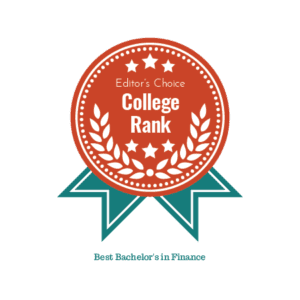MASTER OF EDUCATION IN MATHEMATICS EDUCATION
Purpose
The program enables K-12 teachers to become highly qualified teachers of mathematics. The program requirements meet the needs of teachers who hold bachelor degrees in secondary mathematics, a science or engineering discipline, elementary education, early childhood education, or special education, and teachers who hold alternative certification. The Master of Education in Mathematics Education program is administered through the Gregg Wadley College of Science and Health Professions. Note: This degree is not structured for the purpose of initial teacher certification.
Specialty Accreditation
NSU’s educator preparation programs at the baccalaureate and master’s levels are accredited by the Council for the Accreditation of Educator Preparation (CAEP), www.caepnet.org, (1140 19th Street NW, Suite 400, Washington, D.C. 20036-1023, 202-223-0077), and/or the Oklahoma Office of Educational Quality and Accountability (840 Research Parkway, Suite 455, Oklahoma City, OK 73104, 405-522-5399), www.ok.gov/oeqa
Student Learning Outcomes
- Have an in-depth conceptual knowledge of the content that they teach.
- Have an in-depth understanding of their field and of the theories related to pedagogy and learning. Select and use a broad range of instructional strategies that promote student learning and are able to clearly explain the choices they make in their practice.
- Build upon and extend their knowledge and experiences to improve their own teaching and student learning in the classroom. Develop their knowledge, skills, and professional dispositions to support the propositions of the National Board for Professional Teaching Standards [NBPTS] for the advanced certification of teachers.
- Participate in experiences that require candidates to apply course work in classroom settings, analyze P-12 student learning, and reflect on their practice in the context of theories on teaching and learning. These experiences may include but are not limited to those which focus on students with exceptionalities and students from diverse ethnic/ racial, linguistic, gender, and socioeconomic groups.
- Have a thorough understanding of the major concepts and theories related to assessing student learning and regularly apply these in their practice. Candidates analyze student, classroom, and school performance data and make data-driven decisions about strategies for teaching and learning so that all students learn. They are aware of and utilize school and community resources that support student learning.
- Awareness of current research and policies related to schooling, teaching, learning, and best practices. Candidates are able to analyze educational research and policies and can explain the implications for their own practice and for the profession.
Mathematics Education, M.Ed. - 35 hours
Mathematics Content - 12 hrs
Select 12 hours from the following with advisor approval.
- MATH 5013 - Abstract Algebra II
- MATH 5023 - Number Systems
- MATH 5233 - Data Analysis and Probability
- MATH 5243 - Elementary Number Theory
- MATH 5273 - Geometry and Measurement
- MATH 5283 - Statistical Inference
- MATH 5323 - Algebra and Functions
- MATH 5413 - Vector Analysis
- MATH 5463 - Rate of Change
- MATH 5513 - Technology in Mathematics
- MATH 5613 - History of Mathematics
Guided Electives - 6 hrs
Select 6 hours from the mathematics courses listed above (not used to satisfy the Mathematics Content requirement) or courses from the following list.
Capstone Experience - 2 hrs
A capstone experience is an academic activity that encourages the use of skills learned and knowledge gained in one or more areas of the field of study. It is a culminating experience that goes beyond the coursework required of the Master of Education degree and should be completed near the end of the student’s program. Capstone experiences for the Mathematics Education program will have a significant writing component.
- MATH 5990 - Thesis/Capstone (Arranged with permission from advisor)
STEM Education Certificate Information
Students may complete the STEM Education Certificate as a part of the M.Ed. in Science Education, Mathematics Education, or Instructional Leadership: Professional Enhancement programs through guided course selection. Individuals interested in only earning the STEM certificate, but not currently enrolled in a graduate program at NSU, can apply for Graduate College admission for the purpose of pursuing the STEM certificate.
Degree Available At
- Tahlequah
- Broken Arrow
- Blended
Starting Your NSU Journey?
Make your transition to NSU as smooth and seamless as possible.
Visit our Graduate College Checklist for more information.
Career Services
What Can I Do With A Master's Degree in Mathematics Education?
- School site mathematics education leader
- District elementary or secondary mathematics education curriculum coordinator
- District P-12 mathematics education curriculum coordinator
- District STEM curriculum coordinator
- Oklahoma Elementary Mathematics Specialist
- Mathematics Educational Consultant (Curriculum or Assessment Writing)
Program Chair:
Did You Know?
According to the National Council on Teacher Quality, "On average, a master's degree earns teachers an additional $2,760 in their first year of teaching compared to a bachelor's degree. This salary advantage expands to an average of $7,358 per year by the time a teacher reaches the maximum point of the pay scale". This program also provides excellent preparation for a Ph.D. in Mathematics Education.
Program Requirements
- Essay describing academic and professional background and future goals
- Hold or be eligible for a standard teaching certificate or be eligible for an alternative certification program
- 3.0 GPA in last 60 hours or minimum 288 on the GRE or 383 on the MAT
Application Deadline
- Open Year Round
*Fees include: facility fee, student activity fee, infrastructure fee, cultural/scholastic lecturer fee, student ID fee, technology services fee and remedial course fee, if applicable. NSU courses taught at off campus locations or online might have additional fees assessed. These totals are tuition and fee estimations per program based on the current catalog year. Books, supplies and some fees may not be included.


